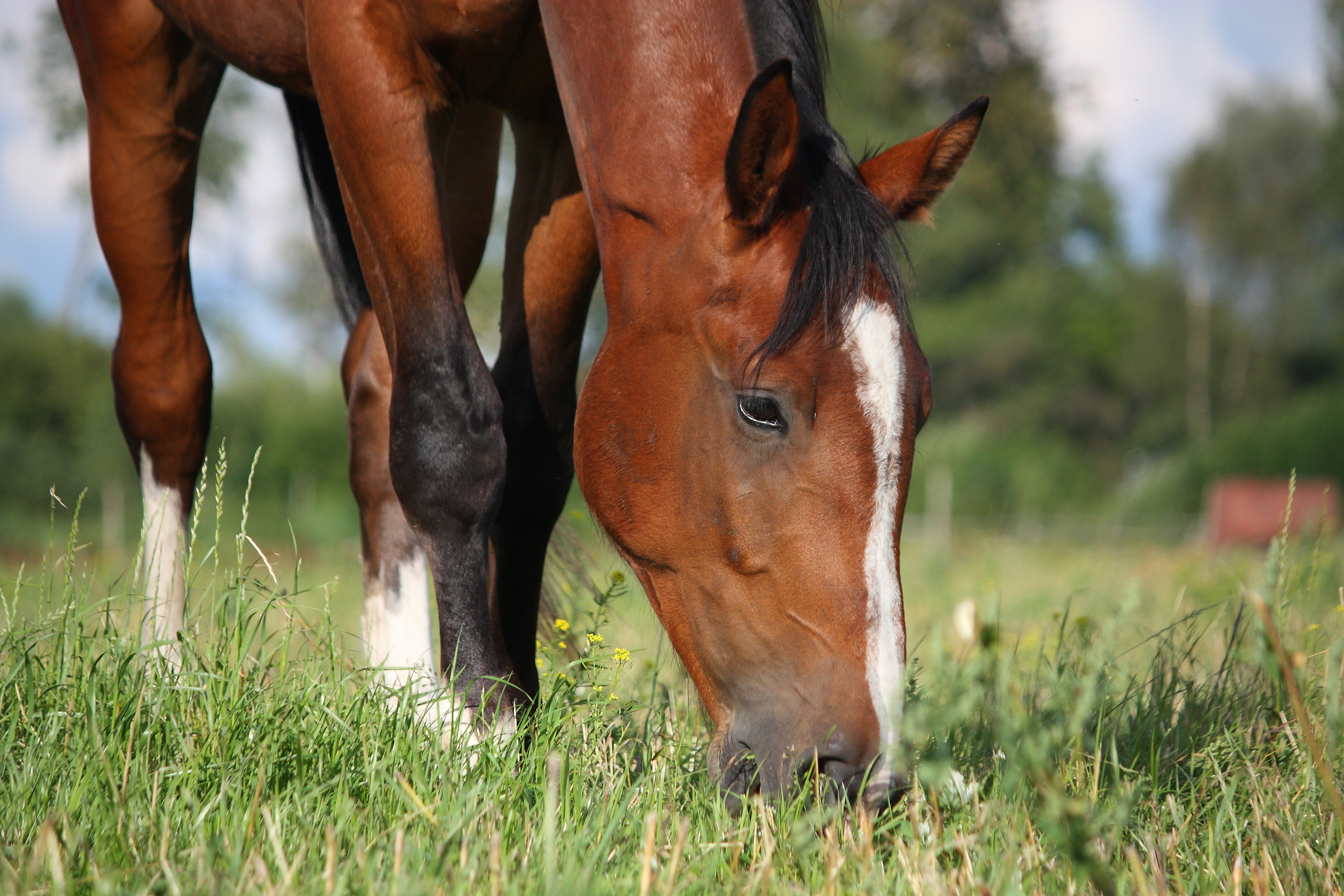A horses' digestive system is designed to support continuous digestion as a horse grazes throughout the entire day. This means a horse’s stomach is constantly producing stomach acid, whether or not there is food in the stomach. Once a horse’s stomach is empty, the risk for gastric upset increases and discomfort can set in immediately. While it may not be possible to keep your horse in an area to graze all day, there are several steps you can take to help support good gastric health in your horse.
1. Provide Free-Choice forage
The horse is intended to be a grazer; eating small amounts throughout day to meet their energy requirements through forage. This is why the horse’s stomach is constantly producing gastric acid. Forage should be available at all times, allowing your horse the ability to “graze” or consume forage naturally. This helps to buffer the acid in the stomach and stimulate saliva production, nature’s best antacid. Slow feed hay nets are a great way to manage your horse’s forage intake by slowing down consumption rate and extending the amount of time spent chewing. Forage is important not only at home, but also while traveling. By providing hay during trailer rides and events, it can help reduce some discomfort brought on by stress and an empty stomach.
2. Commercial Feeds
Cereal grains generally provide a higher level of carbs/starch, which ultimately turns to sugar and can cause irritation to stomach if ulcers/gastric upset are present. Often times, owners increase calories through larger grain portions for horses in heavy work. It is always important to read labels and understand the amount of starch and sugars you are feeding. While starch helps produce energy, too much starch can disrupt the pH in the digestive system. If horses are in need of more energy/weight, try other sources such as Rice Bran, which can help keep the digestive system in order and is overall easier on the stomach. No matter what grain you are feeding, try keeping the amount to smaller portions that are spread out between multiple feedings. Adding alfalfa into the diet when possible can also help buffer stomach acid.
3. Reduce Stressors
Horses undergoing rigorous training, regular hauling, and long periods of stalling are at a higher risk for gastric issues. Introducing horses to hauling and visiting unfamiliar places from an early age can help to keep them less stressed as they begin performing down the road. Be familiar with your horse’s triggers for stress and do what you can to help make them more comfortable. Small changes can make a big impact.
4. Avoid Unprescribed Use of NSAID’s
While trying to help horse feel their best, we urge you to avoid unprescribed use of NSAID’s such as bute (Phenylbutazone) and Banamine (Flunixin Meglumine). While NSAID’s can help horses manage pain and inflammation, always be sure to discuss with a veterinarian prior to use as this can also wreak havoc on your horse’s digestive function. “These drugs decrease the production of enzymes that, in turn, decreases the production of inflammatory mediators called prostaglandins,” states Liz Devine, DVM of K-State. “Unfortunately, some enzymes blocked can cause gastric troubles,” adds Devine, “The enzymes that are blocked by NSAIDs are an integral part of the normal protective response in the gastrointestinal tract.”
5. Provide Additional Digestive Support through a Daily Gastric Supplement
A gastric health supplement helps allow the body, specifically the digestive tract to better manage stress, changes in your horse’s diet or environment, and fluctuations in the pH and microbial population within the gut. As a result, this helps the stomach to face changes more smoothly with a lesser concern of digestive issues.
Gastro-Plex™ helps support healthy digestive function and maintain healthy stomach tissue lining. Plus Levucell SC* which helps reduce the risk of colic/digestive disorders by supporting the hindgut.
Good gastric health in horses is maintained by day to day efforts of owners. Prevention is key when it comes to gastric health.
Additional Sources:


